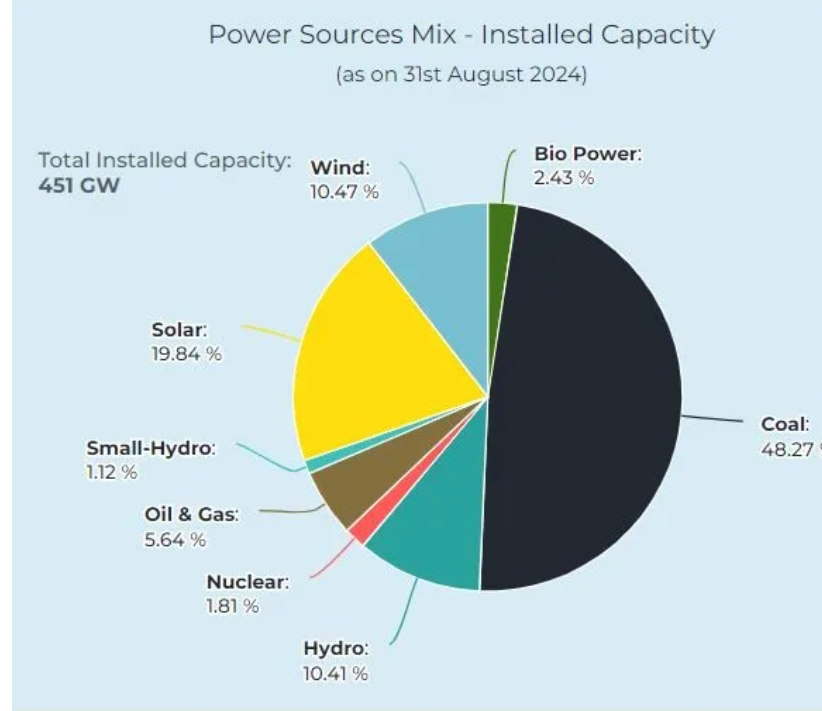Agreements on India’s cooperation on nuclear energy with France and the USA
For years, nuclear energy was sidelined due to safety concerns, but it is now regaining prominence as a viable solution for India’s energy security and sustainability. The recent visit of Prime Minister Narendra Modi and French President Emmanuel Macron to ITER in Marseille underscores the growing political commitment to nuclear power.
Japan’s shift in stance, after abandoning nuclear energy post-Fukushima in 2011, reflects a global re-evaluation of nuclear power amid geopolitical uncertainties, trade disruptions, and supply chain vulnerabilities. As nations strive for energy independence and decarbonization, nuclear energy is emerging as a reliable and strategic option.
For India, transitioning to clean energy is a complex challenge. The country must balance rapid electricity demand growth while reducing coal dependency. Small Modular Reactors (SMRs) offer a feasible solution, providing stable power generation alongside renewable sources like solar and wind.
The Government of India (GoI) has outlined its nuclear ambitions in the 2024 and 2025 budgets, emphasizing partnerships with France for SMRs and Advanced Modular Reactors (AMRs). The focus on indigenous R&D, innovation, and human resource development in nuclear technology aligns with India’s self-reliance goals under “Aatmanirbhar Bharat.”
Indo-US Nuclear Cooperation
India and the United States have strengthened their nuclear energy cooperation during Prime Minister Narendra Modi’s recent visit to the U.S. This collaboration includes advancements in civil nuclear technology, expanding cooperation in Small Modular Reactors (SMRs), and enhancing research partnerships between Indian and American institutions. The agreement also paves the way for the development of next-generation nuclear reactors in India with U.S. technological support. These initiatives are expected to boost India’s nuclear power capacity while ensuring safety, efficiency, and sustainability in energy generation.
Advantages of Nuclear Energy
- Low Carbon Emissions: Unlike fossil fuels, nuclear power produces minimal greenhouse gas emissions, making it an environmentally friendly energy source.
- High Energy Output: Nuclear reactors generate a significant amount of energy from a small amount of fuel, ensuring efficiency and reliability.
- Base Load Power Source: Unlike solar and wind energy, nuclear power plants provide a continuous and stable supply of electricity.
- Reduces Dependence on Fossil Fuels: By integrating nuclear power, India can decrease its reliance on coal and oil, improving energy security.
Disadvantages of Nuclear Energy
- High Initial Costs: Establishing nuclear power plants requires substantial capital investment and long gestation periods.
- Radioactive Waste Disposal: Managing nuclear waste is a significant challenge due to its hazardous nature and long-term environmental impact.
- Safety Concerns: Despite advancements in technology, the risks of nuclear accidents, such as Chernobyl and Fukushima, remain a concern.
- Limited Fuel Availability: While uranium reserves are relatively abundant, they are still finite, necessitating long-term resource planning.
India’s Energy Mix –
The Case for Other Renewable Energy Sources
While nuclear energy presents a promising solution for energy security, renewable sources like solar, wind, and hydroelectric power are increasingly becoming more desirable. These energy sources are inherently safer, produce no hazardous waste, and are more sustainable in the long run. Advances in battery storage technology and smart grids are improving the reliability of renewables, addressing intermittency issues. Additionally, the declining costs of solar and wind energy make them economically viable alternatives to nuclear power. Given India’s vast renewable energy potential, investing in these sources alongside nuclear energy can ensure a cleaner, safer, and more resilient energy future.
To achieve the target of at least 100 GW of nuclear power by 2047, regulatory reforms are crucial. Amending liability laws and enabling private sector participation will attract investments and accelerate nuclear expansion. SMRs, particularly, can play a transformative role by repurposing decommissioned coal plants, thus facilitating a smooth energy transition.




